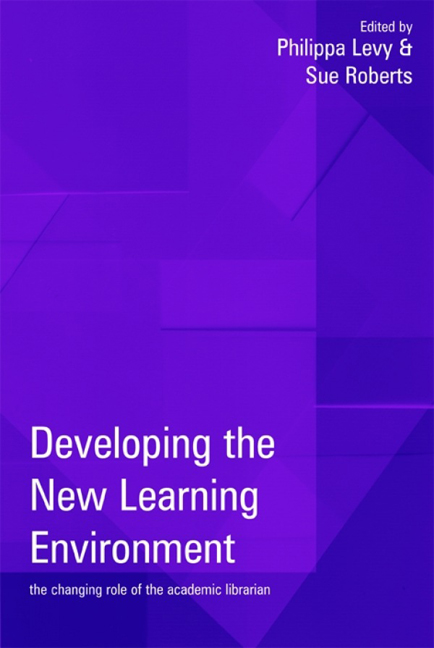Introduction: the challenge for the academic librarian
Published online by Cambridge University Press: 08 June 2018
Summary
In response to far-reaching changes in the higher education (HE) environment since the mid-1990s, the roles and work of learner support professionals are undergoing significant transformation, both in the UK and more widely in the international context. Library and information professionals, in common with others who have responsibility for supporting learning and for educational development, are experiencing the growing impact of ‘academic convergence’ on both their practice and their professional identity. Increasingly, the boundaries are blurring between their roles and those of academics, learning technologists, information technologists, educational developers, skills support specialists and others. New collaborations and partnerships between staff with different professional backgrounds are emerging as part of the effort to enable active and independent learning amongst an increasingly diverse student community and within the new ‘space’ for educational activity that has resulted from the convergence and rapid development of information and communication technologies.
In this context, library and information professionals are becoming involved in the development and support of new modes of blended and distributed learning, including the development of e-learning approaches and resources, and new strategies for information literacy education. In its vision for the UK academic library in 2005, SCONUL (Society of College, National and University Libraries) highlighted learning support and educational liaison as critical areas for development across the sector and predicted that in the future, ‘for [librarians] who can demonstrate their competence to do so, there will be opportunities to further extend their roles as learning advisors, trainers and developers of information literacy skills’ (Corrall, 2001). However, the SCONUL report also warned that, given the trend towards increased integration in the provision of learning support, librarians would need to be proactive in order to secure both recognition and involvement in this area. There is a practical challenge here in terms of professional awareness development and education within the library and information community. These trends and challenges are perhaps most evident in HE but are also reflected within further education (FE) and more broadly across the public sector. We are now in 2005; this collection explores current issues, and also looks to future possibilities.
- Type
- Chapter
- Information
- Developing the New Learning EnvironmentThe changing role of the academic librarian, pp. xi - xviiiPublisher: FacetPrint publication year: 2005



